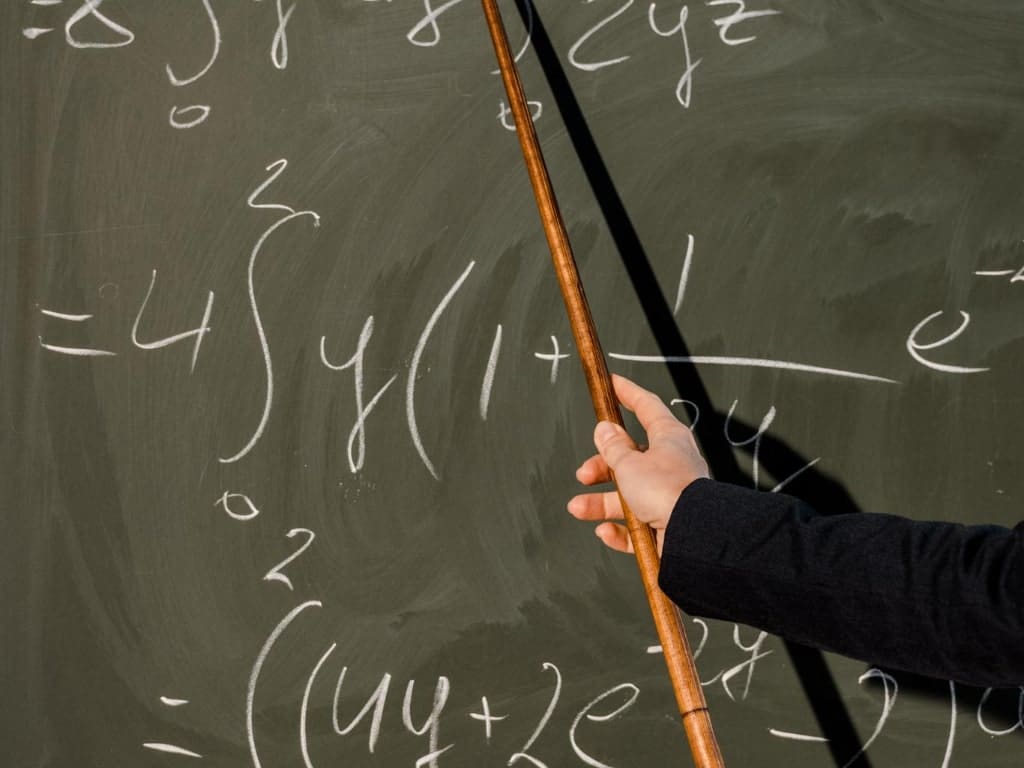What are Binary numbers and how to apply arithmetic operations on Binary Numbers?
3 min read

Binary number is widely used in the number system. In mathematics, binary numbers are used to write the values only 0 and 1 instead of writing 10 decimal numbers. The alternative of decimal 10 base numbers is binary numbers.
In this post, we learn about binary numbers and their calculations using arithmetic operations.
What are Binary Numbers?
A number expressed in base-2 is said to be a binary number. In mathematics, a binary number is a method of expression that uses only two symbols: zero and one.
A binary number is a number stated in the binary numeral system, also known as the base-2 numeral system, which uses two symbols to denote numeric values: commonly 0 (zero) and 1 (one). The base-2 system is a two-radix positional notation.
How to convert decimal to binary?
To convert a decimal number into a binary number we have to use the division method with base 2.
Example 1
Convert 123 to binary number.
Solution
Step 1: Write the given number.
123
Step 2: Apply the division method.
| 2 | 123 |
| 2 | 61 – 1 |
| 2 | 30 – 1 |
| 2 | 15 – 0 |
| 2 | 7 – 1 |
| 2 | 3 – 1 |
| 1 – 1 |
Step 3: collect the remainders.
(1111011)2
Hence, (1111011)2 is a binary number of 123.
Example 2
Convert 246 to binary number.
Solution
Step 1: Write the given number.
246
Step 2: Apply the division method.
| 2 | 246 |
| 2 | 123 – 0 |
| 2 | 61 – 1 |
| 2 | 30 – 1 |
| 2 | 15 – 0 |
| 2 | 7 – 1 |
| 2 | 3 – 1 |
| 1 – 1 |
Step 3: collect the remainders.
(11110110)2
Hence, (11110110)2 is a binary number of 246.
How to convert binary to decimal?
To convert a binary number, we have to multiply each digit of a binary number by 2 and take the power from zero to n from right to left.
Example 1
Convert (1111011)2 to decimal number.
Solution
Step 1: Write the given number.
(1111011)2
Step 2: Multiply each digit by 2.
(1 x 2) (1 x 2) (1 x 2) (1 x 2) (0 x 2) (1 x 2) (1 x 2)
Step 3: Put addition sign between them.
(1 x 2) + (1 x 2) + (1 x 2) + (1 x 2) + (0 x 2) + (1 x 2) + (1 x 2)
Step 4: Take power from 0 to 6 from right to left.
(1 x 26) + (1 x 25) + (1 x 24) + (1 x 23) + (0 x 22) + (1 x 21) + (1 x 20)
Step 5: Solve the exponents.
(1 x 64) + (1 x 32) + (1 x 16) + (1 x 8) + (0 x 4) + (1 x 2) + (1 x 1)
Step 6: solve.
64 + 32 + 16 + 8 + 0 + 2 + 1 = 123
Hence, 123 is the decimal number of (1111011)2.
Example 2
Convert (11110110)2 to decimal number.
Solution
Step 1: Write the given number.
(11110110)2
Step 2: Multiply each digit by 2.
(1 x 2) (1 x 2) (1 x 2) (1 x 2) (0 x 2) (1 x 2) (1 x 2) (0 x 2)
Step 3: Put addition sign between them.
(1 x 2) + (1 x 2) + (1 x 2) + (1 x 2) + (0 x 2) + (1 x 2) + (1 x 2) + (0 x 2)
Step 4: Take power from 0 to 6 from right to left.
(1 x 27) + (1 x 26) + (1 x 25) + (1 x 24) + (0 x 23) + (1 x 22) + (1 x 21) + (0 x 20)
Step 5: Solve the exponents.
(1 x 128) + (1 x 64) + (1 x 32) + (1 x 16) + (0 x 8) + (1 x 4) + (1 x 2) + (0 x 1)
Step 6: solve.
128 + 64 + 32 + 16 + 0 + 4 + 2 + 0 = 246
Hence, 246 is the decimal number of (11110110)2.
Example 3
Convert (11110111)2 to decimal number.
Solution
Step 1: Write the given number.
(11110111)2
Step 2: Multiply each digit by 2.
(1 x 2) (1 x 2) (1 x 2) (1 x 2) (0 x 2) (1 x 2) (1 x 2) (1 x 2)
Step 3: Put addition sign between them.
(1 x 2) + (1 x 2) + (1 x 2) + (1 x 2) + (0 x 2) + (1 x 2) + (1 x 2) + (1 x 2)
Step 4: Take power from 0 to 6 from right to left.
(1 x 27) + (1 x 26) + (1 x 25) + (1 x 24) + (0 x 23) + (1 x 22) + (1 x 21) + (1 x 20)
Step 5: Solve the exponents.
(1 x 128) + (1 x 64) + (1 x 32) + (1 x 16) + (0 x 8) + (1 x 4) + (1 x 2) + (1 x 1)
Step 6: solve.
128 + 64 + 32 + 16 + 0 + 4 + 2 + 1 = 247
Hence, 247 is the decimal number of (11110111)2.
Arithmetic operations on binary numbers
We can add, subtract, multiply, or divide two or more binary numbers. To find the accurate results of any problem related to adding, subtracting, multiplying, or divide of two binary operations you can use Binary Calculator. Let’s take an example of each operation to understand this concept.
Example 1
Add (11110110)2, (1111011)2.
Solution
Step 1: Write the given binary numbers with an addition sign between them.
(11110110)2 + (1111011)2
Step 2: Solve.
(11110110)2
+ (1111011)2
(101110001)2
Hence, the sum of (11110110)2, (1111011)2 is (101110001)2.
Example 2
Subtract (11110110)2, (1111011)2.
Solution
Step 1: Write the given binary numbers with a subtraction sign between them.
(11110110)2 – (1111011)2
Step 2: Solve.
(11110110)2
– (1111011)2
(1111011)2
Hence, the difference of (11110110)2, (1111011)2 is (1111011)2.
Example 3
Multiply (11110110)2, (1111011)2.
Solution
Step 1: Write the given binary numbers with a multiplication sign between them.
(11110110)2 x (1111011)2
Step 2: Solve.
(11110110)2
x (1111011)2
11110110
11110110x
00000000xx
11110110xxx
11110110xxxx
11110110xxxxx
11110110xxxxxx
(111011000110010)2
Hence, the product of (11110110)2, (1111011)2 is (111011000110010)2.
Example 4
Divide (11110110)2, (1111011)2.
Solution
Step 1: Write the given binary numbers with a division sign between them.
(11110110)2 / (1111011)2
Step 2: Solve.
(11110110)2 / (1111011)2 = (10)2
Hence, the quotient of (11110110)2, (1111011)2 is (10)2.
If you want to learn binary arithmetic operations, you can use a binary calculator with steps which is a very handy resource for that purpose.
Summary
Binary numbers are that numbers that can be written in base-2. We can convert binary to decimal and decimal to binary. We can also perform addition, subtraction, multiplication, and division on two binary numbers.
A binary number is widely used in the number system. In mathematics, binary numbers are used to write the values only 0 and 1 instead of writing 10 decimal numbers. The alternative of decimal 10 base numbers is binary numbers.
In this post, we learn about binary numbers and their calculations using arithmetic operations.





